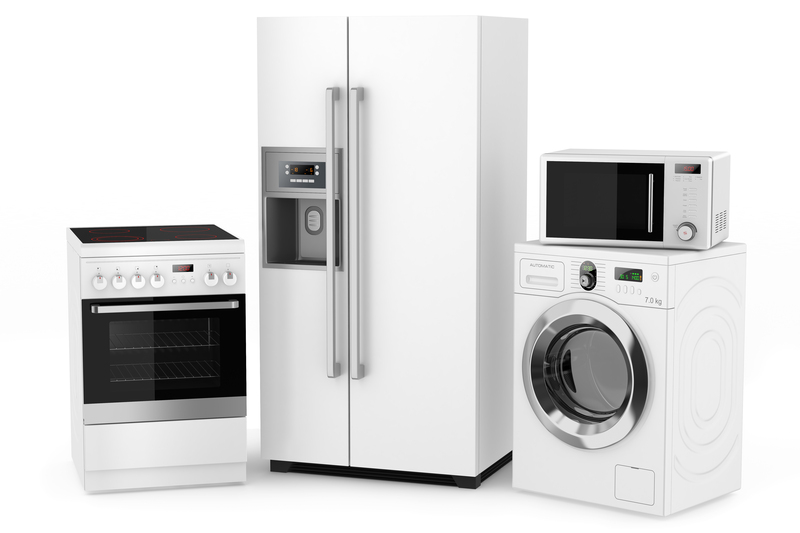Practical Guide to Storing a Freezer for Months at a Time
Whether you want to take advantage of seasonal sales, reduce your grocery bills, or simply prepare for unexpected events, utilizing your freezer as long-term storage is a smart and efficient move. But how do you ensure that the food you store in your freezer remains safe, delicious, and high-quality for months at a time? In this comprehensive guide, we'll walk you through everything you need to know about storing a freezer for months at a time--from prepping and organizing food to freezer maintenance and thawing techniques.
Why Focus on Long-Term Freezer Storage?
Many households use the freezer for short-term storage--ice cream, leftovers, and make-ahead meals. However, when you store a freezer for months at a time, you can save time and money, minimize food waste, and always have ingredients for healthy meals on hand. This strategy is especially useful during holidays, busy seasons, or for those who live far from regular shopping facilities.
- Save money: Buy in bulk and take advantage of discounts.
- Reduce waste: Extend the life of perishable items by freezing them before they go bad.
- Emergency preparedness: Always have food on hand in case of unexpected events.
- Convenience: More meal options with less shopping.

Preparing Your Freezer for Long-Term Storage
Proper preparation is key when getting your freezer ready for long-term storage. Before you start stocking up, take some time to make sure your appliance is in good shape and set up for success.
Clean and Defrost Your Freezer
- Unplug the freezer and remove all current contents.
- Allow any ice build-up to melt away. Ice reduces efficiency and takes up valuable space.
- Wipe down all internal surfaces with a solution of warm water and mild baking soda.
- Dry thoroughly before plugging back in.
Check Your Freezer's Temperature
Set your freezer to 0?F (-18?C) or lower for optimal long-term storage. Food stored at or below this temperature will remain safe to eat indefinitely, although texture and flavor may degrade after extended periods.
Organize with Purpose
- Arrange by type: Group similar items together (meats, vegetables, baked goods, etc.)
- Use baskets or bins: Keep smaller packages grouped and easy to access.
- First-in, first-out: Place older items in front and newer in the back.
Choosing Foods for Long-Term Freezer Storage
Not every food freezes equally well. For freezing meals for months, choose foods that maintain quality in sub-zero temperatures. Here's a closer look at which items are best suited for months-long freezer storage and a few that you should avoid.
Best Foods to Freeze for Months
- Uncooked meats and poultry: Beef, pork, chicken, and turkey keep their quality for up to a year.
- Seafood: Most fish and shellfish last 3-6 months.
- Bread and baked goods: Bread, muffins, and cakes freeze well for 3-6 months.
- Fruits and vegetables: Blanch most vegetables before freezing for best texture and color.
- Soups, stews, and sauces: Freeze in portion-sized containers for easy thawing.
- Cheese: Hard cheeses like cheddar and Swiss hold up better than soft cheeses.
- Pre-cooked grains and pasta: Cooked rice, quinoa, and pasta freeze easily for up to 2 months.
Foods to Limit or Avoid Freezing Long-Term
- Lettuce and delicate greens: Become mushy after thawing.
- High-moisture fruits: Watermelon and oranges lose texture.
- Eggs in the shell: Can crack and become unsafe.
- Dairy with high water content: Cream cheese, sour cream, and yogurt separate after freezing.
- Fried foods: Often lose crispness.
Proper Packaging for Months-Long Freezer Storage
The secret to food lasting in the freezer for many months? It's all about packaging. Air is your food's worst enemy, leading to freezer burn, spoilage, and loss of flavor. Use these packaging tips to maximize longevity:
Packaging Materials
- Freezer bags: Heavy-duty, airtight, and flexible for stacking.
- Vacuum sealers: Remove all air for optimal freshness. A worthy investment for bulk freezing.
- Plastic containers: Use food-grade containers with tight seals for liquids and casseroles.
- Aluminum foil and freezer paper: Wrap meats and bread tightly before placing in a freezer bag.
How to Package Foods for Freezer Storage
- Portion out food to suit your future needs (single or family servings).
- Make sure all food is completely cooled before packaging.
- Remove as much air as possible from bags and containers.
- Seal tightly and double wrap when possible for extra insurance.
- Label each package with:
- Contents
- Date frozen
- Suggested "use by" date
How Long Can Foods Safely Stay in the Freezer?
One of the most common questions about months-long freezer storage is how long different foods stay safe and maintain their quality. Here are USDA-recommended freezer storage times (for best quality, not safety):
- Raw steaks and roasts: 6-12 months
- Raw chops: 4-6 months
- Ground meat: 3-4 months
- Poultry (whole): 1 year
- Poultry (parts): 9 months
- Cooked meat and leftovers: 2-3 months
- Soups & stews: 2-3 months
- Bread and baked goods: 3-6 months
- Vegetables (blanched): 8-12 months
- Fruit: 8-12 months
Food will remain safe even beyond these times if kept consistently frozen at or below 0?F, but taste and texture may decline.
Freezer Organization: Maximizing Space and Accessibility
A well-organized freezer not only allows you to maximize storage but also helps maintain food quality and keeps things accessible. Here's how to keep your stocked freezer organized for months:
- Label everything: Include both packaging date and contents.
- Keep a freezer inventory list: Tape a list to the door and update as you add or remove items.
- Use bins, baskets, or boxes: Store by category--meats, veggies, ready meals, etc.
- Stack flat: Freeze items flat first, then stack like files for greatest space efficiency.
- Rotate contents: Move older packages to the front and newer to the back.
Top Freezer Organization Tips
- Freeze single layers flat: Soups, sauces, and cooked grains can be poured into freezer bags and frozen flat for easy stacking.
- Dedicate zones: Assign "zones" for specific food types or meal kits for quick meal prep.
- Inventory sheets: Download or create an inventory template that you can update easily.
Maintaining Freezer Efficiency Over Several Months
To ensure food safety and minimize energy consumption over months, it's vital to keep your freezer running efficiently and address issues quickly:
- Check the temperature regularly with a freezer thermometer.
- Keep your freezer about 75-80% full: A full freezer runs more efficiently but still allows for air circulation.
- Defrost periodically if your freezer is manual defrost--thick ice layers can raise energy costs and reduce storage space.
- Keep the door closed as much as possible: Each opening lets in warm air and can cause freezer burn.
- Clean the coils: Vacuum or brush off dust from external coils every 6-12 months for better performance.
Recognizing and Preventing Freezer Burn
Freezer burn results from moisture loss and can make your food appear white, dry, or leathery. It's not harmful, but it does affect taste and texture.
How to Prevent Freezer Burn
- Use airtight packaging or, better yet, vacuum sealers.
- Avoid overpacking--leave some space for air circulation.
- Keep the freezer at 0?F or lower.
- Do not refreeze thawed food unless it's been cooked (to avoid texture changes and bacteria growth).
How to Safely Thaw Long-Frozen Food
When you're ready to use what you've stored, proper thawing is crucial to preserve taste and safety. Follow these methods for best results:
Safe Thawing Techniques
- Overnight in the refrigerator: Safest, but slowest. Place the item in a container to catch drips and allow 12-24 hours.
- In cold water: Submerge well-sealed packages in cold tap water, changing the water every 30 minutes. Cook immediately after thawing.
- Microwave: Use only if you'll be cooking the food immediately. Some areas may start cooking during microwaving.
- Cooking from frozen: Many vegetables, pre-cooked grains, and even some meats can go straight from freezer to oven or pot.
Special Considerations for Upright vs. Chest Freezers
Chest freezers are more energy efficient and hold cold air better, which means they're ideal for long-term freezer storage. However, upright freezers provide easier access to items. Consider your space, usage habits, and accessibility needs before investing.
- Chest freezers: Better for bulk storage and power outages; need efficient organization to avoid "freezer archaeology."
- Upright freezers: Great for frequent access; incorporate shelving, bins, and clear labeling to maximize use.

Bonus: Freezer Storage FAQs
1. Can I freeze food in glass containers?
Yes, but only if the glass is freezer-safe (like tempered glass or special freezer jars). Leave room for expansion to avoid cracks.
2. Is it better to freeze cooked or raw meals for long-term?
Some meats and veggies retain better texture when frozen raw, but cooked stews and soups are perfect for quick reheating. Experiment with your preferred meals and keep notes for future reference.
3. What should I do if the power goes out?
Keep the freezer door closed. A full freezer can keep food safely frozen for up to 48 hours (half-full, about 24 hours). After a power outage, check for ice crystals; if you find any, it's safe to refreeze foods.
Conclusion: Make the Most of Your Freezer for Months-Long Storage
With the right planning, smart purchases, and proper organization, storing a freezer for months at a time is easy and rewarding. Not only does it save you money and reduce waste, but it also ensures you're ready for any occasion. Remember to maintain your freezer regularly, rotate your inventory, and package foods carefully for months of convenience and peace of mind.
For even more tips and inspiration on stocking a freezer for months, check back with us regularly for new freezer-friendly recipes, storage hacks, and updates on the best freezer technology.
Start today, and unlock the power of your freezer!



